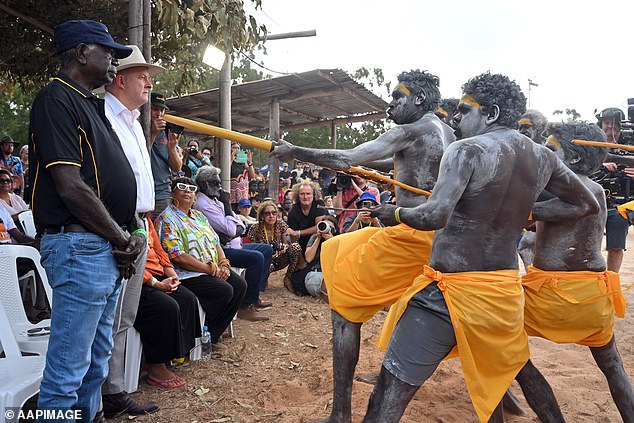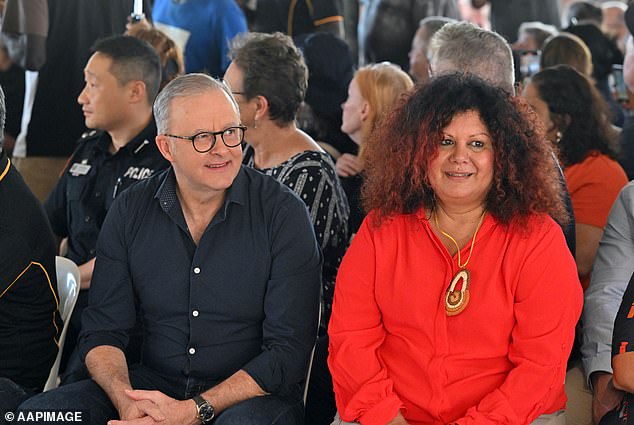The ideals behind the Uluru Statement continue to guide the federal government, the Minister for Indigenous Australia says, despite the Prime Minister effectively ruling out a formal treaty and truth commission.
While the creation of a Makarrata commission, or truth-telling body, was a cornerstone of the 2017 declaration, Anthony Albanese backed its ideals but backed away from the creation of a formal body.
Minister for Indigenous Australians Malarndirri McCarthy said the government remained committed to improving outcomes for First Nations people.
“We will not waver from our commitment to the Uluru Statement from the Heart in terms of our love and our support for all those who gathered (at Uluru) in 2017,” she told ABC TV on Monday.
Senator McCarthy said Indigenous Australians still needed time to come to terms with losing the voice referendum in 2023.
Establishing an Indigenous voice in federal parliament was one of three elements of the Uluru Statement, along with a Makarrata Commission and a treaty.
Ten months after the referendum defeat, Senator McCarthy said bipartisan support was needed to advance outcomes for Indigenous people.
“This was clearly a heartbreaking event… people are still recovering from it,” he said.
Prime Minister Anthony Albanese and Minister for Indigenous Australians Malarndirri McCarthy

Mr Albanese said talking to Indigenous organisations and people was the best way to engage with First Nations people.
“It was deeply traumatizing for First Nations people, who overwhelmingly voted ‘yes,’ especially in the northern parts of the country.”
Mr Albanese said talking to Indigenous organisations and people was the best way to engage with First Nations people.
He said that at the Garma festival, Australia’s largest indigenous gathering, he was focused on finding “new ambition, energy and determination” to work with the indigenous community, rather than “rummaging through the ashes” of the failed vote.
“We do so with the understanding that the change that so many Aboriginal and Torres Strait Islander people have been seeking and advocating for over years, decades and even lifetimes, was not defined or determined by one day,” she said.
“It has always been about positive, practical and lasting change in the lives of people and in the life of our nation.”
This comes as Race Discrimination Commissioner Giridharan Sivaraman said a landmark apology at the festival for Northern Territory policing injustices inflicted on First Nations people would lose its significance if not accompanied by cultural change within the force.
Mr Sivaraman acknowledged that it was a vital step towards improving police relations in the territory, but added that “words have their limits”.
“Change must now be embedded throughout the police force and the structures created within it… I hope that this cultural change is being driven from the very top of the police force,” he said.
A commitment must be made to independent investigations into recent actions by serving members of the Northern Territory Police, such as the upcoming review into systemic racism by the Northern Territory Anti-Discrimination Commission, Sivaraman said.
Aboriginal and Torres Strait Islander Social Justice Commissioner Katie Kiss agreed the apology was “necessary and symbolic” but said the force also needed to address injustices that continued “to this day”.

